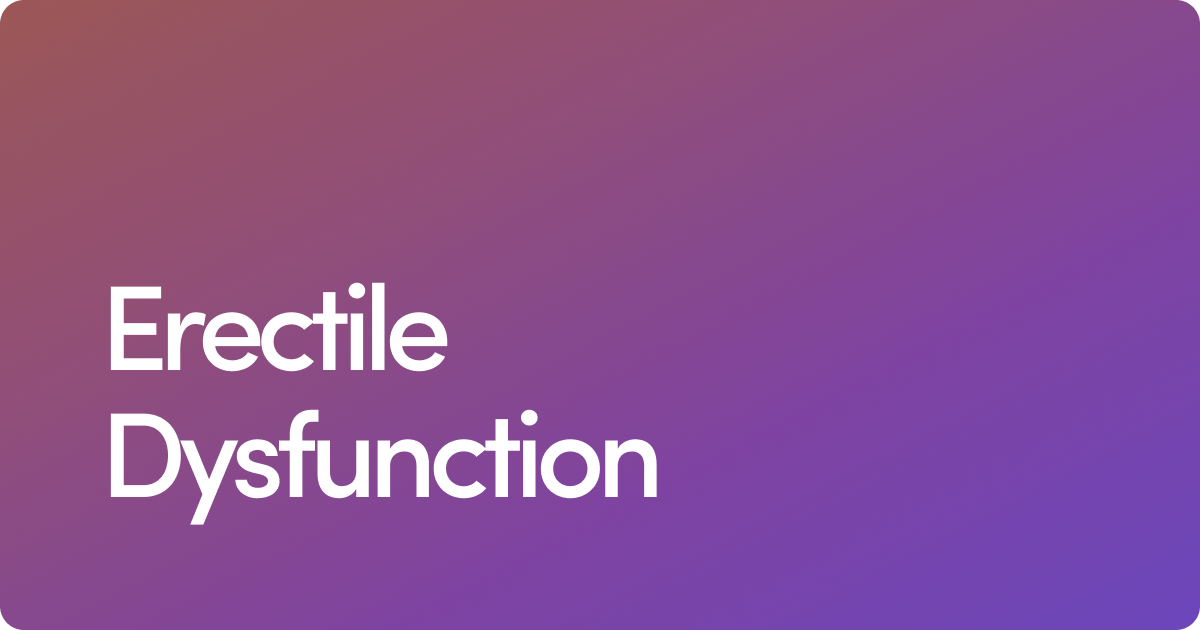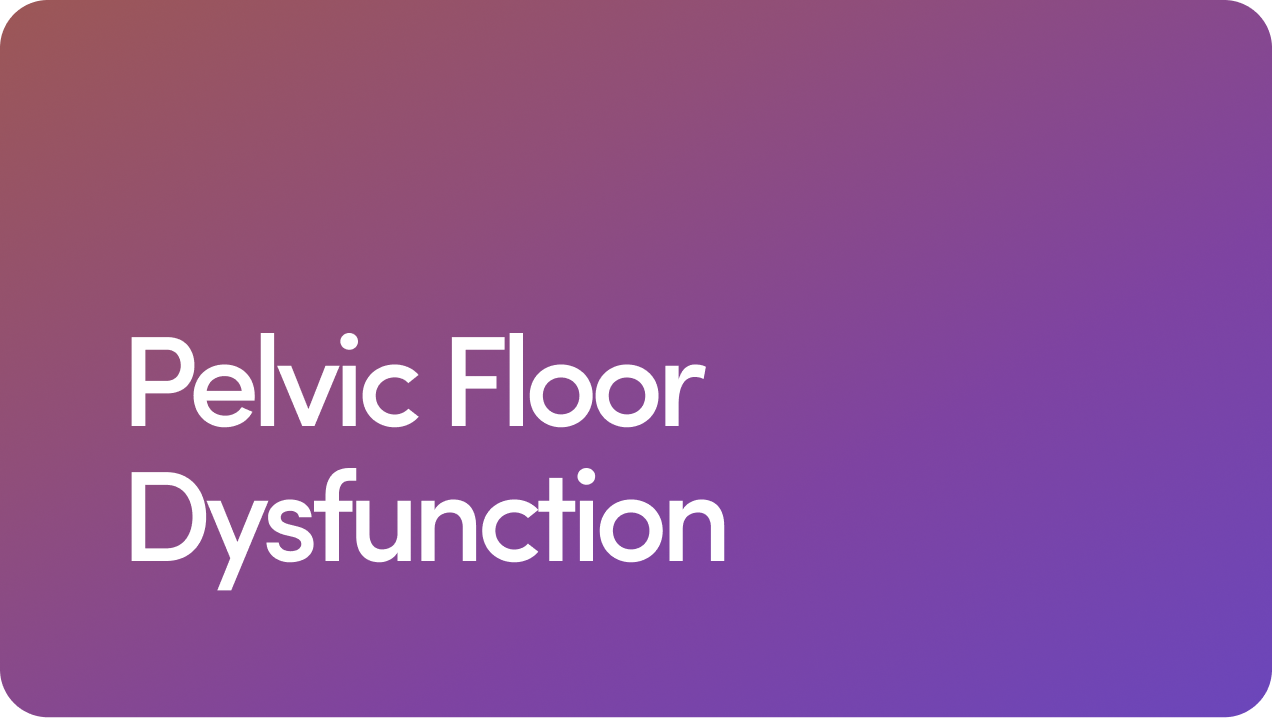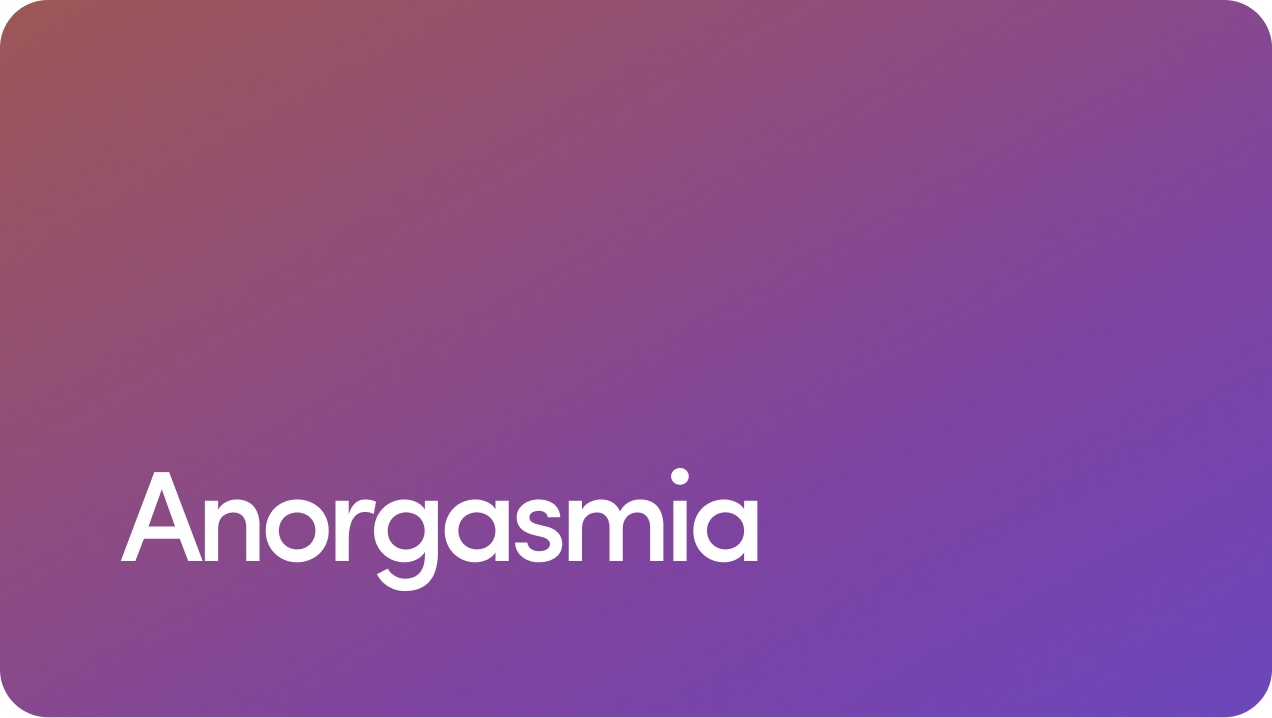Content
Enjoy sex like you used to
The Benefits of Not Ejaculating For 7 Days

Abstinence is wrapped up in a lot of social and cultural stigma. If you’ve been reading about the benefits of semen retention, the dangers of so-called “blue balls,” or the purported health benefits of not ejaculating for seven days, odds are you’re struggling to separate science from hearsay.
Abstaining from sex for a week isn’t going to cure any diseases, give you superheroic mental clarity, or recharge your life force. But some evidence suggests it could offer benefits for sexual and mental wellness.
Below, we’ll cover what happens if you stop ejaculating for seven days, the benefits and risks of ejaculatory abstinence, and what experts generally recommend.
Content
What happens when you don’t ejaculate for seven days? Scientific evidence would say “not much.”
Some alleged benefits of abstaining from sex and masturbation for a week come from a 2002 study conducted in China of just 28 men.
Researchers examined the men’s serum testosterone levels during a week of abstinence. From days two to five, changes in serum testosterone concentrations varied little throughout the group. But at the seven-day mark, those levels climbed to nearly 150 percent of baseline levels.
In other words, the study found that ejaculation (or a lack thereof) had a substantial effect on serum testosterone after seven days of abstaining.
It’s possible that people who suddenly see a spike in testosterone after the seven-day mark could experience some supposed benefits of not ejaculating. But questions about original testosterone levels and other issues related to testosterone would need to be assessed on an individual basis to confirm that theory.
Not Ejaculating for 7 Days Benefits
So, what are the positive effects of not ejaculating for a week? Will not ejaculating for seven days offer physical benefits?
The so-called “NoFap” community on Reddit might argue that the ancient practice of abstinence leads to better self-control, more happiness, and improved overall health in men who participate. However, there’s virtually no evidence to substantiate claims about mental health, energy levels, focus, and productivity benefits of not masturbating.
Finding comprehensive research to clarify the confusion is also difficult. There are relatively few peer-reviewed studies about the potential benefits of abstinence, and most available data isn’t conclusive.
Here’s what we know about the so-called benefits of not ejaculating for multiple days in a row.
Abstinence May Improve Mood
Some research suggests that abstaining from ejaculating may increase testosterone, which plays a key role in mental health.
For example, research on testosterone replacement therapy (TRT) shows that the treatment increases mood, energy, and sense of well-being. TRT can also reduce anger and irritability.
So if abstinence does increase testosterone, it may lead to improved mental health. Still, more research is needed to confirm if these improvements are as efficient as TRT.
In an older 2001 study, three weeks of sexual abstinence led to increased testosterone levels — but the study group was small, with just 10 men.
It May Lower Risks Linked to Excessive Masturbation
A person who ejaculates too frequently could risk problems like friction burn.
If frequent ejaculation is associated with porn addiction or risky sexual behavior, not ejaculating for a period and examining your relationship to sex could lead to more sexual pleasure and improved mental health.
It May Improve Semen Volume and Sperm Count
Some research shows that abstaining from ejaculation for five to eight days may improve semen volume and sperm count.
However, earlier studies show that abstinence can lead to decreases in sperm motility (how well sperm moves) and sperm morphology (the shape and structure of sperm) after just seven days of abstinence.
More research is needed to understand how abstinence affects sperm quality.
If you’re struggling with infertility, ask your provider to run a semen analysis as a first step.
Abstinence Isn’t a Proven Treatment for Premature Ejaculation or ED
Some sources suggest an abstinence break may have benefits for sexual function — specifically for issues like premature ejaculation (PE) and erectile dysfunction (ED). To date, we’ve yet to see any evidence.
Research hasn’t uncovered a link between erectile dysfunction and masturbation, ejaculation, porn, or any of the other of the NoFap community’s central theories about sexual health.
That’s not to say future studies won’t identify some link between excessive porn consumption and erectile dysfunction. But both pornography usage and sexual dysfunction can be linked to already-defined psychological risk factors like social isolation, depression, and low self-esteem.
The Health Benefits of Ejaculation
Generally, ejaculation frequency isn’t associated with health benefits or risks, except in the extremes. (A person who stops ejaculating entirely could have an increased risk of prostate cancer and lose out on the feel-good and sleep-well benefits of oxytocin and other chemicals released in the brain during orgasm.)
And the risks of abstaining too often — side effects like epididymal hypertension (you know this as “blue balls”) — are real but overall not serious.
As for excessive masturbation, the data is a little fuzzy on the risks of too much masturbation. But any habit affecting your relationships, quality of life, or ability to tackle daily responsibilities is probably something you need to cut back on.
Like sex, masturbation has been linked to reduced stress and anxiety symptoms. That is, as long as you don’t feel any moralistic guilt about the practice — and you shouldn’t since it’s perfectly normal.
In short, if you want to address a problem like premature ejaculation or erectile dysfunction, you’ll need to go about it in a different way and look into proven treatments with a trained healthcare provider.
What are the benefits of not ejaculating for 30 days or seven days? Right now, there’s not enough evidence that reduced ejaculation frequency is linked to any real health benefits.
But if you’re noticing negative effects on your sex life due to excessive masturbation or porn addiction, it may be worth exploring. Cutting back on frequent ejaculations may be something that works for you, even if there’s not a lot of evidence to support your choice.
If you’re considering abstinence for health reasons, explore these treatment options first:
Medication and other therapies. Health conditions like low testosterone, infertility, low sperm count, or sexual dysfunction can often be treated with medication and other therapies. See your healthcare provider or a sexual medicine specialist to address any sexual problems you’re experiencing.
Psychotherapy. Addiction, performance anxiety, and low self-esteem may be better addressed with talk therapy than abstinence.
Lifestyle changes. Making small lifestyle tweaks can have a positive effect on your sexual, mental, and physical health. Before you stop ejaculating for days or weeks at a time, consider if there’s any room for improvement when it comes to diet, sleep, exercise, or other habits.
Ready to solve some problems? To improve your erections or other men’s health issues like premature ejaculation, low desire for sexual activity, or low T, reach out to a healthcare provider to get medical advice.
9 Sources
- Aneja J, et al. (2015). Can masturbatory guilt lead to severe psychopathology: a case series. https://www.ncbi.nlm.nih.gov/pmc/articles/PMC4341317/
- De Jonge C, et al. (2004). Influence of the abstinence period on human sperm quality. https://www.fertstert.org/article/S0015-0282(04)00605-3/fulltext
- Exton M, et al. (2001). Endocrine response to masturbation-induced orgasm in healthy men following a 3-week sexual abstinence. https://pubmed.ncbi.nlm.nih.gov/11760788/
- National Center for Biotechnology Information (NCBI). (2022). Premature ejaculation: What can I do on my own?. https://www.ncbi.nlm.nih.gov/books/NBK547551/
- Jiang M. (2002). Periodic changes in serum testosterone levels after ejaculation in men. https://pubmed.ncbi.nlm.nih.gov/12506329/
- Leslie S, et al. (2024). Erectile dysfunction. https://www.ncbi.nlm.nih.gov/books/NBK562253/
- Myers C, et al. (2019). Pelvic floor muscle training improves erectile dysfunction and premature ejaculation: a systematic review. https://pubmed.ncbi.nlm.nih.gov/30979506/
- Shabsigh R, et al. (2017). PD69-02 double-blind, randomized controlled trial of topical 4% benzocaine wipes for management of premature ejaculation: interim analysis. https://www.auajournals.org/doi/10.1016/j.juro.2017.02.3143
- Tyagi V, et al. (2017). Revisiting the role of testosterone: Are we missing something?. https://www.ncbi.nlm.nih.gov/pmc/articles/PMC5434832/
Editorial Standards
Hims & Hers has strict sourcing guidelines to ensure our content is accurate and current. We rely on peer-reviewed studies, academic research institutions, and medical associations. We strive to use primary sources and refrain from using tertiary references. See a mistake? Let us know at [email protected]!
This article is for informational purposes only and does not constitute medical advice. The information contained herein is not a substitute for and should never be relied upon for professional medical advice. Always talk to your doctor about the risks and benefits of any treatment. Learn more about our editorial standards here.
Mike Bohl, MD
Education
Bachelor of Arts, Egyptian and Ancient Western Asian Archaeology - Brown University | College, 2011
Doctor of Medicine - Brown University | Warren Alpert Medical School, 2017
Master of Public Health - Columbia University | Mailman School of Public Health, 2018
Master of Liberal Arts, Journalism - Harvard University | Harvard Extension School, 2022
Master of Science, Healthcare Leadership - Cornell University | Weill Cornell Graduate School of Medical Sciences, 2024
Master of Business Administration - Cornell University | Samuel Curtis Johnson Graduate School of Management, 2024
Training
Internship - NYU Grossman School of Medicine | Internal Medicine Residency—Community Health Track, 2019
Medical License
New York, 2019
Certificates & Certifications
Certified in Public Health - National Board of Public Health Examiners, 2018
Medical Writer Certified - American Medical Writers Association, 2020
Editor in the Life Sciences - Board of Editors in the Life Sciences, 2020
Certified Personal Trainer - National Academy of Sports Medicine, 2022
Certified Nutrition Coach - National Academy of Sports Medicine, 2023
Board Certified Medical Affairs Specialist - Accreditation Council for Medical Affairs, 2023
Certificate of Advanced Education in Obesity Medicine - Obesity Medicine Association, 2025
Regulatory Affairs Certification - Regulatory Affairs Professionals Society, 2025
Affiliations & Memberships
Specialties & Areas of Focus
General Practice
Previous Work Experience
Medical Expert Board Member - Eat This, Not That!, 2021–
Director Scientific & Medical Content - Stealth Biotech PBC, 2023–2024
Director, Medical Content & Education - Ro, 2021–2023
Associate Director, Medical Content & Education - Ro, 2020–2021
Senior Medical Writer - Ro, 2019–2020
Medical Editor/Writer - Sharecare, 2017–2020
Medical Student Producer - The Dr. Oz Show, 2015–2016
Research Affiliate - University Hospitals of Cleveland, 2013–2014
Publications & Research
Title: Biomechanical evaluation of a novel suturing scheme for grafting load-bearing collagen scaffolds for rotator cuff repair
Published in: Clinical Biomechanics
Date: 2015
URL: https://www.clinbiomech.com/article/S0268-0033(15)00143-6/abstract
Title: Pelvic incidence and acetabular version in slipped capital femoral epiphysis
Published in: Journal of Pediatric Orthopaedics
Date: 2015
Title: Relationship between pelvic incidence and osteoarthritis of the hip
Published in: Bone & Joint Research
Date: 2016
URL: https://boneandjoint.org.uk/Article/10.1302/2046-3758.52.2000552
Title: Effects of PDGF-BB delivery from heparinized collagen sutures on the healing of lacerated chicken flexor tendon in vivo
Published in: Acta Biomaterialia
Date: 2017
URL: https://www.sciencedirect.com/science/article/pii/S1742706117305652
Media Mentions & Features
Dr. Bohl’s medical expertise is regularly featured in consumer health media:
Eat This, Not That!: Contributor and Medical Expert Board Member on nutrition and wellness topics
The Dr. Oz Show: Behind-the-scenes contributor to Emmy Award-winning health segments
Sharecare: Public-facing health writer, simplifying complex medical issues for millions of readers
Why I Practice Medicine
Dr. Bohl developed a passion for medical content while working at The Dr. Oz Show. He realized that, through the media, he could bring important health information to the lives of many more people than he would be able to working in a doctor’s office.
Hobbies & Interests
Biking, resistance training, sailing, scuba diving, skiing, tennis, and traveling
Related Articles
Related Conditions
 Erectile Dysfunction
Erectile Dysfunction
 Premature Ejaculation
Premature Ejaculation
 Low Testosterone
Low Testosterone
 Retrograde Ejaculation
Retrograde Ejaculation
 Pelvic Floor Dysfunction
Pelvic Floor Dysfunction
 Anorgasmia
Anorgasmia